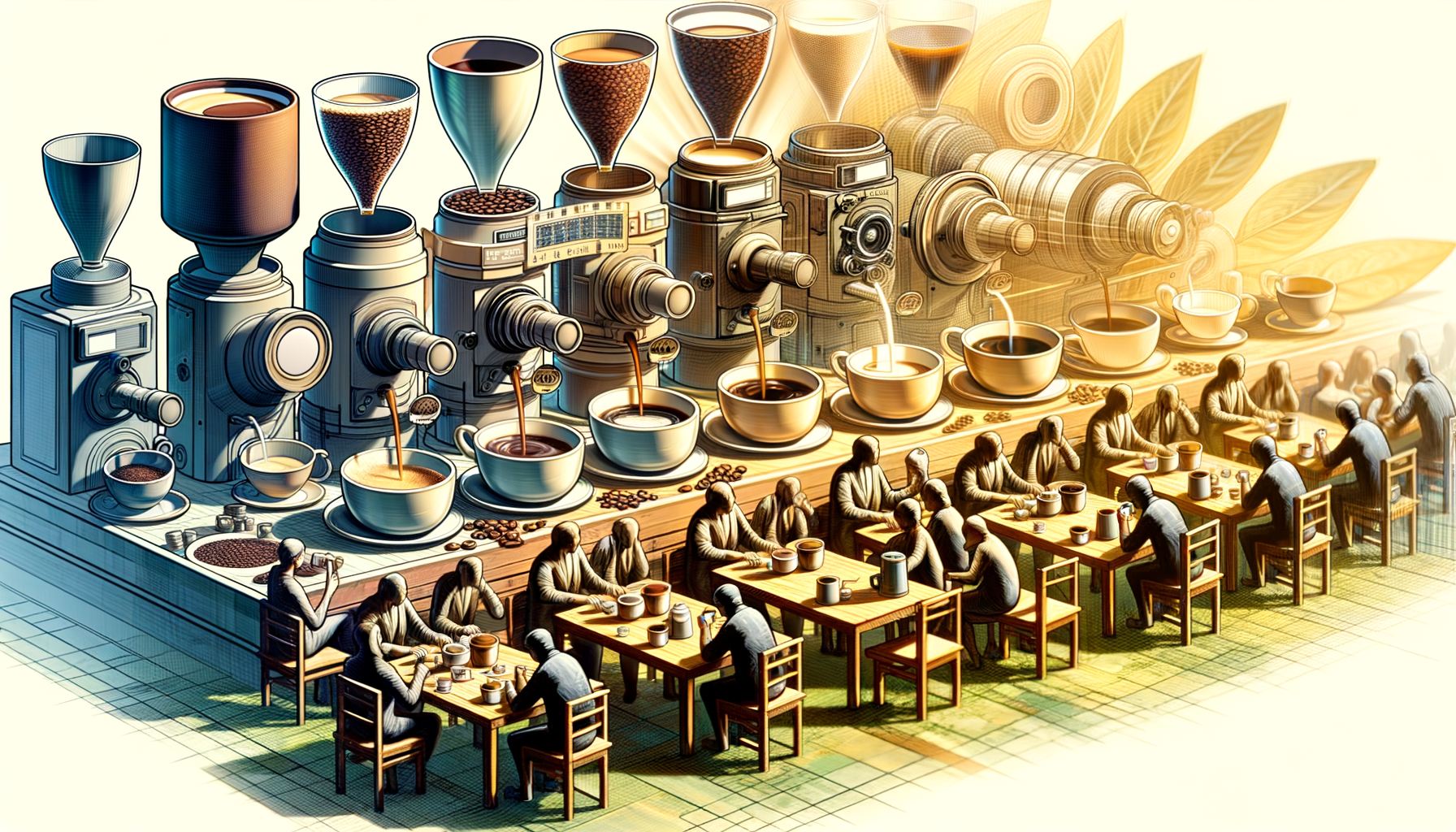Barista competitions have transformed significantly over the years, evolving from simple showcases of skill to complex arenas of innovation. Initially, these events focused on basic espresso-making skills and latte art. Today, they emphasize creativity, technique, and presentation. This shift reflects the broader evolution of the coffee industry, where consumers increasingly seek unique and high-quality experiences. As a result, barista competitions have become platforms for pushing the boundaries of coffee craftsmanship.
The World Barista Championship (WBC) is a prime example of this evolution. Established in 2000, the WBC has grown in scope and prestige, attracting competitors from over 60 countries. Each year, participants present a 15-minute routine, showcasing their skills in espresso, milk drinks, and signature beverages. The competition encourages baristas to experiment with new techniques and ingredients, driving innovation in the industry.
Statistics highlight the growing impact of these competitions. According to the Specialty Coffee Association, participation in barista competitions has increased by 30% over the past decade. This surge reflects the rising interest in specialty coffee and the desire to explore new frontiers in coffee-making. As a result, barista competitions have become a catalyst for creativity and excellence in the coffee world.
Quotes from industry leaders underscore the significance of these events. “Barista competitions are the Olympics of coffee,” says Peter Giuliano, Chief Research Officer at the Specialty Coffee Association. “They inspire baristas to push their limits and redefine what’s possible in coffee.” This sentiment captures the essence of how these competitions are shaping a new era of coffee craftsmanship.
Innovative Techniques and Ingredients: Redefining the Coffee Experience
Barista competitions are at the forefront of innovation, encouraging participants to experiment with new techniques and ingredients. This creativity is redefining the coffee experience, offering consumers unique and memorable flavors. One notable trend is the use of alternative brewing methods, such as siphon, AeroPress, and cold brew. These techniques allow baristas to extract different flavor profiles, enhancing the complexity of the coffee.
In addition to brewing methods, competitors are exploring unconventional ingredients to create signature beverages. Ingredients like cascara, spices, and even fermented fruits are being used to add depth and character to coffee drinks. This experimentation is not only expanding the flavor palette but also challenging traditional notions of what coffee can be. As a result, consumers are treated to a diverse array of **flavor experiences**.
The impact of these innovations is evident in consumer preferences. A survey by the National Coffee Association found that 48% of coffee drinkers are interested in trying new and unique coffee flavors. This demand for novelty is driving baristas to continually push the boundaries of creativity, resulting in a dynamic and ever-evolving coffee landscape.
Quotes from past competition winners highlight the importance of innovation. “Barista competitions are a playground for creativity,” says Agnieszka Rojewska, 2018 World Barista Champion. “They allow us to experiment and discover new ways to delight coffee lovers.” This spirit of exploration is at the heart of how barista competitions are redefining the coffee experience.
The Role of Technology in Shaping the Future of Coffee Artistry
Technology is playing an increasingly important role in barista competitions, enabling new levels of precision and creativity. Advanced espresso machines, grinders, and brewing devices are allowing baristas to fine-tune their craft with unprecedented accuracy. These tools are essential for achieving the consistency and quality required in high-stakes competitions.
One significant technological advancement is the use of data analytics in coffee preparation. Baristas are now able to monitor variables such as temperature, pressure, and extraction time in real-time. This data-driven approach allows for precise adjustments, ensuring optimal flavor extraction. As a result, technology is enhancing the artistry of coffee-making, enabling baristas to achieve new heights of excellence.
The integration of technology is also evident in the use of digital platforms for training and collaboration. Online forums, webinars, and virtual competitions are providing baristas with access to a global community of coffee professionals. This connectivity is fostering the exchange of ideas and techniques, accelerating the pace of innovation in the industry.
Quotes from industry experts highlight the transformative impact of technology. “Technology is revolutionizing the way we approach coffee,” says James Hoffmann, coffee expert and author. “It allows us to explore new possibilities and push the boundaries of what’s achievable.” This perspective underscores the pivotal role of technology in shaping the future of coffee artistry.
Inspiring the Next Generation: How Competitions Cultivate Coffee Creativity
Barista competitions are not only about showcasing talent but also about inspiring the next generation of coffee professionals. These events provide a platform for emerging baristas to learn from industry leaders and gain valuable experience. By participating in competitions, young baristas are exposed to new techniques, trends, and ideas, fostering a culture of innovation and creativity.
Mentorship is a key component of this process. Experienced baristas often serve as coaches and judges, offering guidance and feedback to competitors. This mentorship helps aspiring baristas develop their skills and confidence, preparing them for successful careers in the coffee industry. As a result, competitions are nurturing a new wave of talented and passionate coffee professionals.
The impact of these competitions on career development is significant. According to a survey by the Barista Guild, 70% of competition participants reported increased job opportunities and career advancement after competing. This statistic highlights the role of competitions in opening doors and creating pathways for success in the coffee industry.
Quotes from young baristas emphasize the inspirational nature of these events. “Competing has been a transformative experience,” says Ben Put, a multiple-time Canadian Barista Champion. “It has pushed me to grow and explore new possibilities in coffee.” This sentiment captures the essence of how barista competitions are cultivating creativity and inspiring the next generation of coffee artisans.


